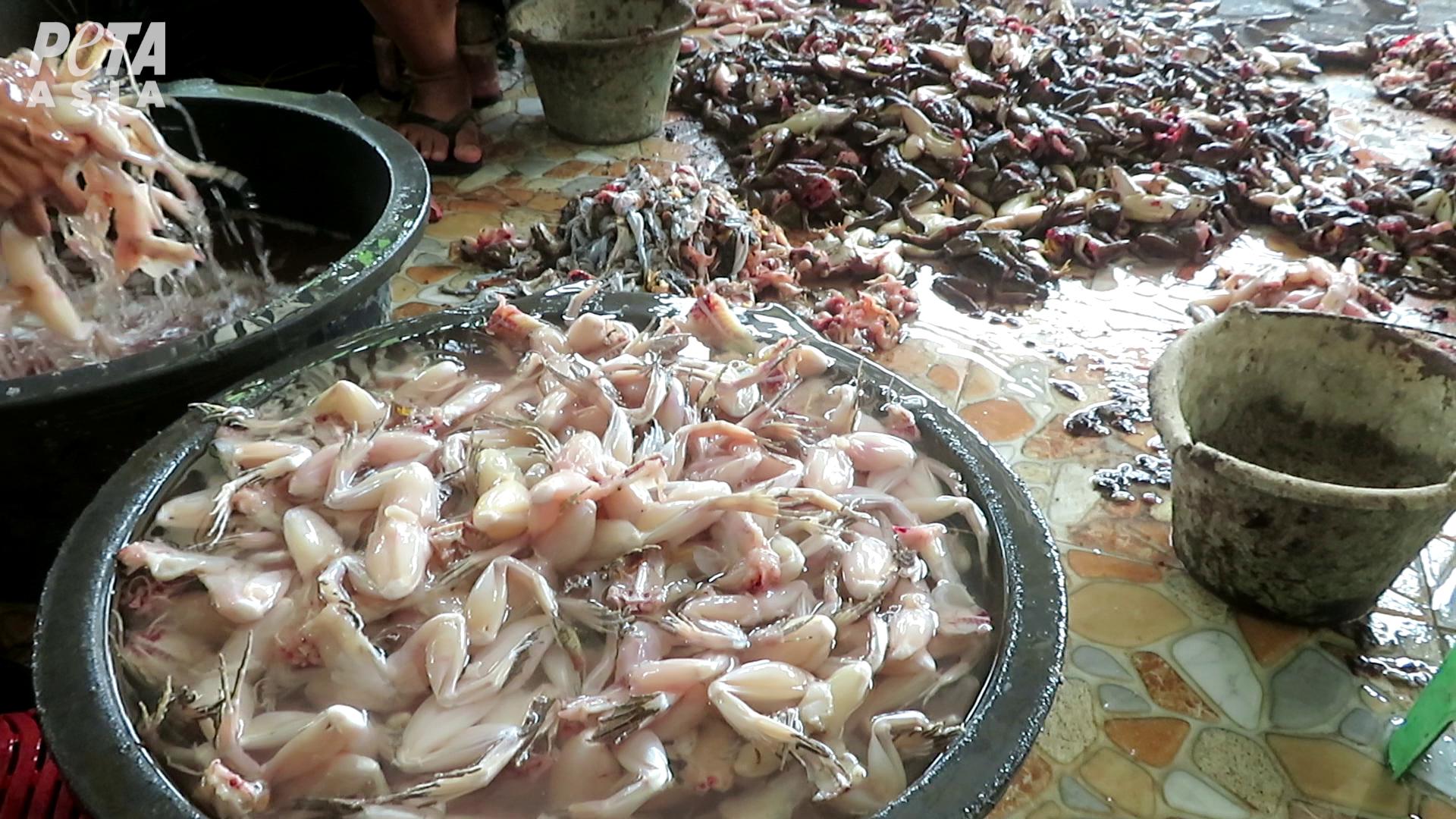UN INT Intro Text w/ Centered Large Responsive Image - *Important Note* You must UNLINK this shared library component before making page-specific customizations.
Update (15 April 2024):
Global supermarket giant Carrefour has now committed to cutting ties with its supplier in Indonesia and ending its sale of frog legs from the country following PETA’s shocking video exposé. This decision follows more than 90,000 people taking action for frogs by joining PETA entities around the world in writing to Carrefour Group. Thank you to everyone who participated!
We celebrate that Carrefour has taken action for frogs who are captured in the wild, confined to severely crowded bags, and slaughtered – some while fully conscious. Please, never buy or consume frog legs – and contact any restaurant you come across serving them, anywhere in the world, to ask that they remove them from the menu.
Feel free to use our sample letter.
PETA’s recent investigation into Indonesia’s frog-meat industry unearthed a disturbing reality that demands immediate attention. From extremely crowded sacks of suffocating frogs to agonizing killing methods, our findings show how frogs suffer before reaching people’s plates in the European Union (EU) and elsewhere.
Frogs are known for their webbed feet and flying leaps, but these fascinating, sensitive animals have many other notable characteristics. Many frog species are devoted, resourceful parents and have a variety of personality traits, ranging from bold to guarded to peaceful.
Just like humans, frogs feel pain and fear. They don’t want to be taken from their homes and killed, yet nearly 322 tons of frog legs were shipped from Indonesia to the EU from March to May of 2023 and sold in stores like Carrefour. We’re calling on everyone to urge Carrefour to stop selling frog legs.
Investigations Expose Cruelty to Frogs
A PETA video exposé documented that workers take frogs from nature and stuff them into extremely crowded sacks—causing many of them to asphyxiate and die. These animals may be kept in these sacks for two agonizing days.
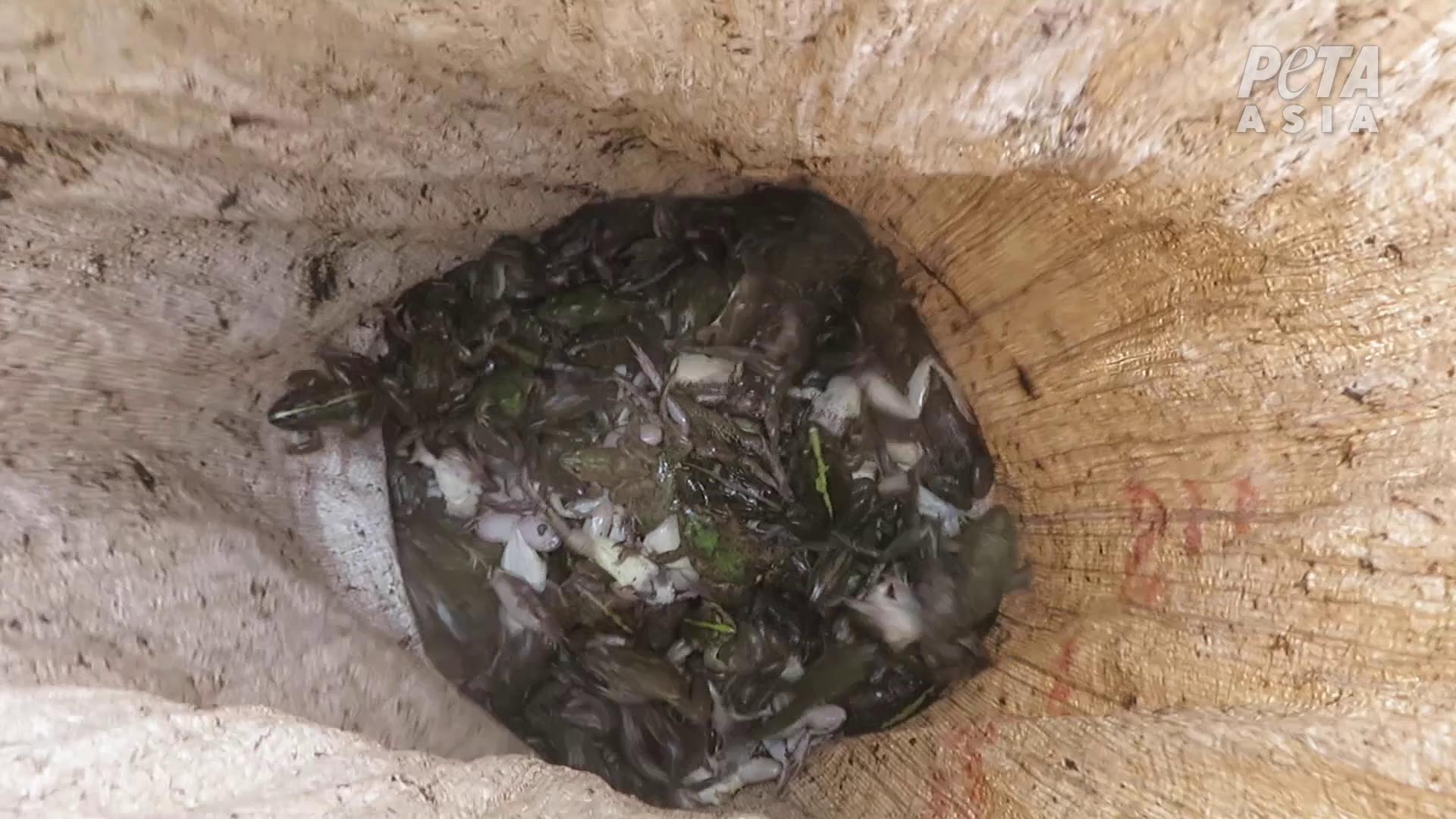
The video shows an employee slamming live frogs to the ground while sorting living and dead ones. Workers used knives to hack at frogs’ heads and feet. Some of the animals’ heads were completely severed, while others were only partially decapitated. Some workers also cut frogs’ feet before hacking at their heads.
Many frogs were still alive and moving when workers tore away their skin. Investigators documented that frogs’ mouths opened and closed after decapitation and that their headless bodies moved for minutes after they were slaughtered.
This hell for frogs isn’t isolated, as our investigators documented egregious cruelty to frogs in every randomly selected facility they visited in Indonesia, many of which supply Carrefour.
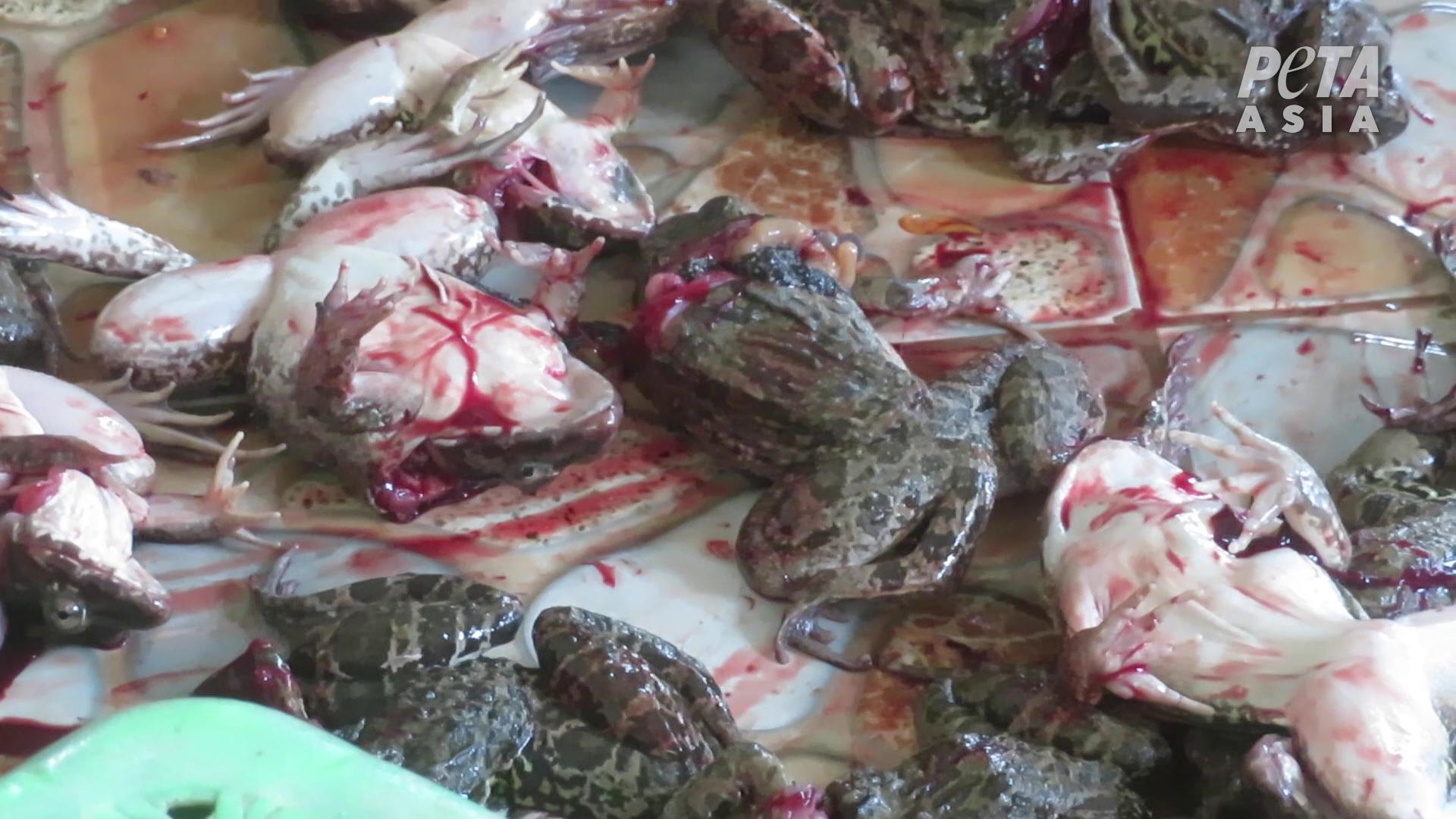
Environmental Implications
The consequences of this industry go beyond the cruelty inflicted on frogs. Various sources have shown that frog populations in Indonesia have declined in recent decades. According to the International Union for Conservation of Nature’s Red List of Threatened Species, populations of the fanged river frog and the crab-eating frog are decreasing.
If this trend continues, problems stemming from ecological imbalance—such as farmers’ use of more pesticides because there are no natural predators for insects—will inevitably develop.
Of the two species of frogs captured by workers in the video, only one is on the Ministry of Environment and Forestry’s list of species permitted to be caught in nature. This restriction is likely why frog legs are mislabeled for export.
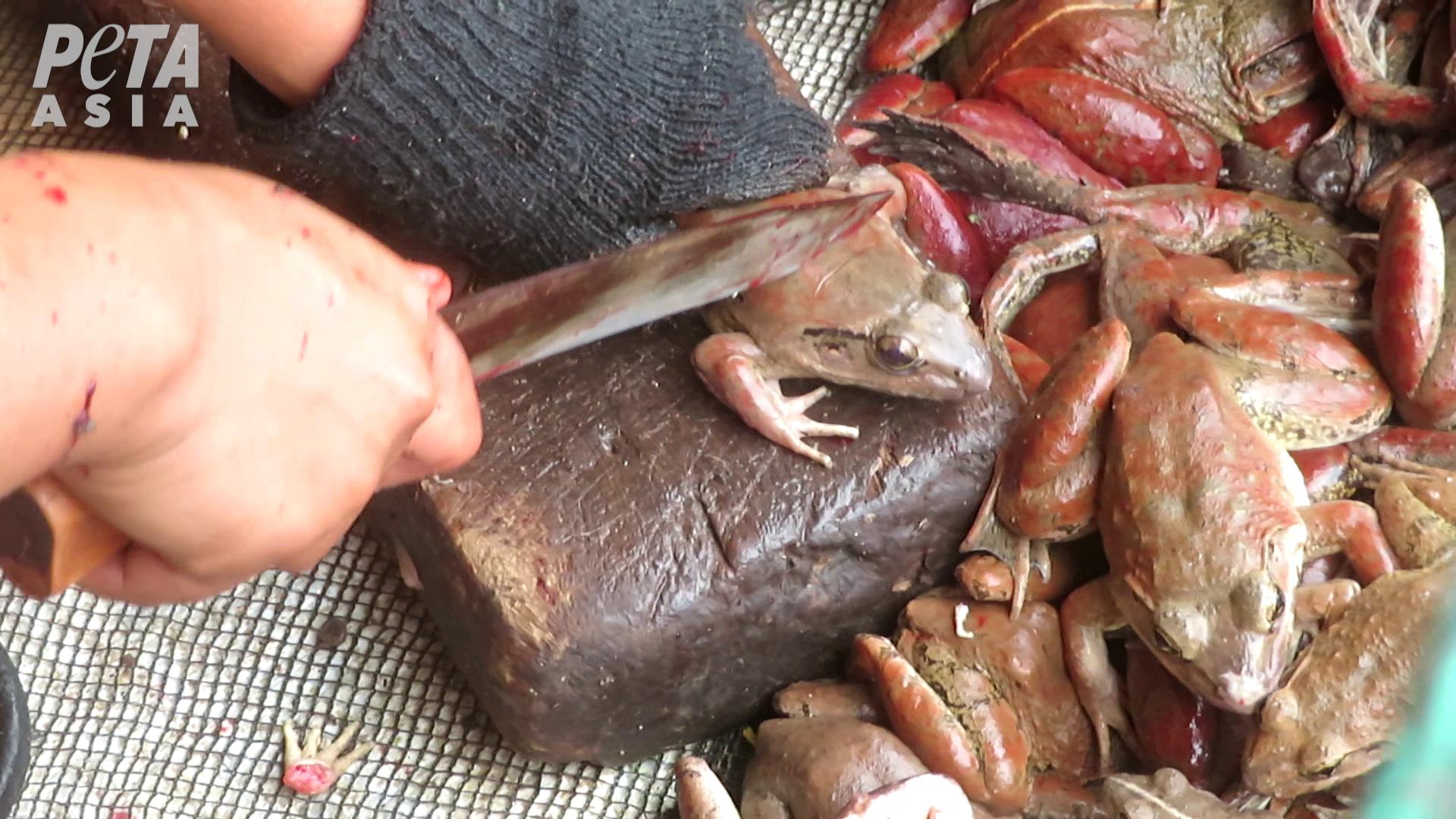
Labels That Lie
Indonesian suppliers deliberately mislabel and sell the Limnonectes macrodon frog species as Fejervarya cancrivora. Suppliers that sell these animals to distributors overseas admit that mislabeling is a regular occurrence and that they can distinguish between the species when packing them.
Violations of Laws
As we confront the violent reality of the frog-meat industry, we must acknowledge the blatant disregard for the laws in place. Article 66(1) of Indonesian Law No. 18 of 2009 requires that measures be taken concerning animal well-being during capture, husbandry, slaughter, and transport. Additionally, Article 66(2) requires that animals generally be free from pain, fear, or pressure. Yet these facilities operate with callous disregard for the frogs’ pain and suffering and brazenly ignore these laws.
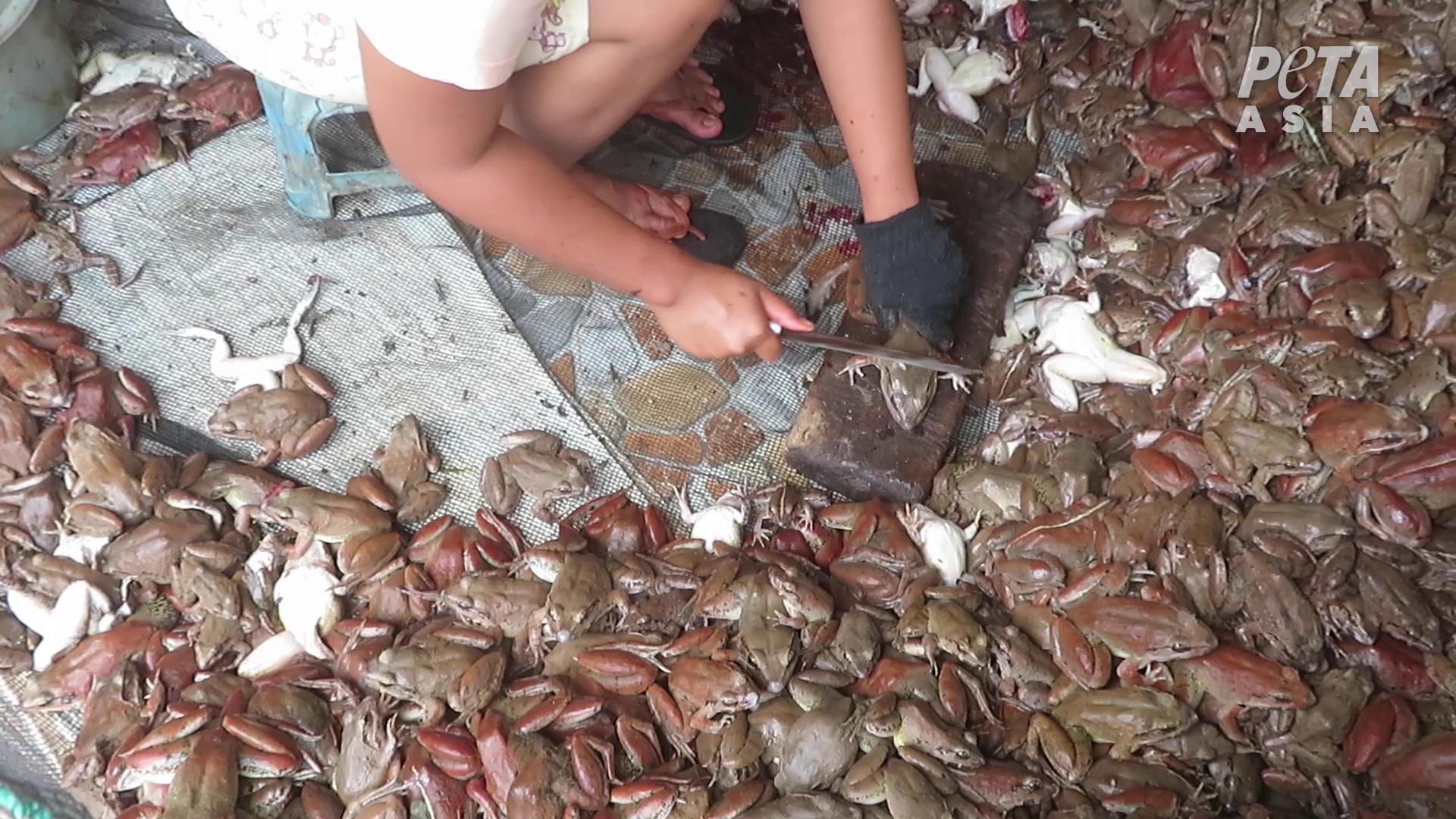
PETA has taken a stand against this cruelty by filing a complaint with the relevant authorities, but we need your help. As conscientious consumers, we all hold the power to end this suffering—so let’s adopt a vegan lifestyle and urge companies like Carrefour to make compassionate changes.
Take Action for Frogs
Carrefour was identified as one of the recipients of frog legs from many of the facilities investigated by PETA. Like all animals, frogs deserve compassion. You can help stop the abuse of these sensitive individuals, who endure agonizing deaths before reaching Carrefour’s shelves.
